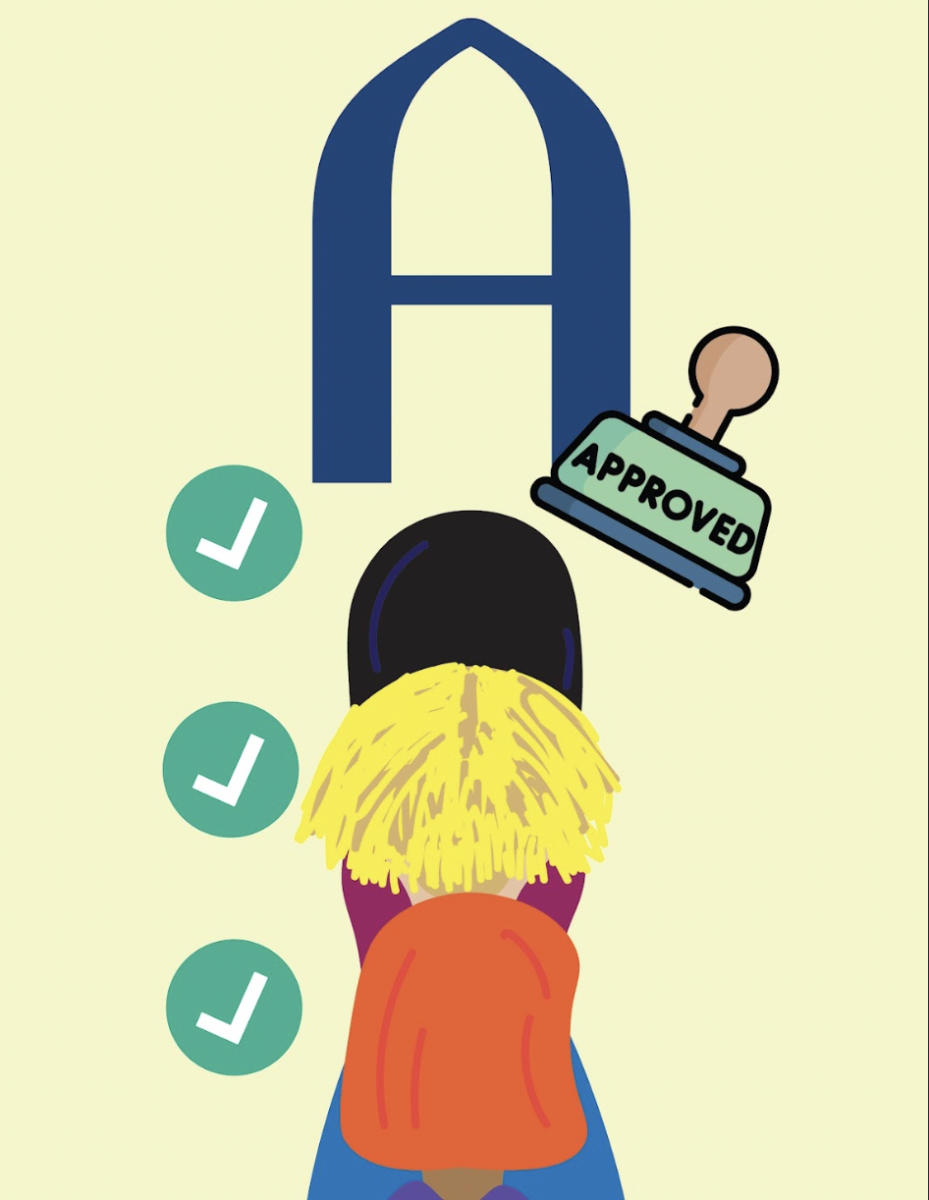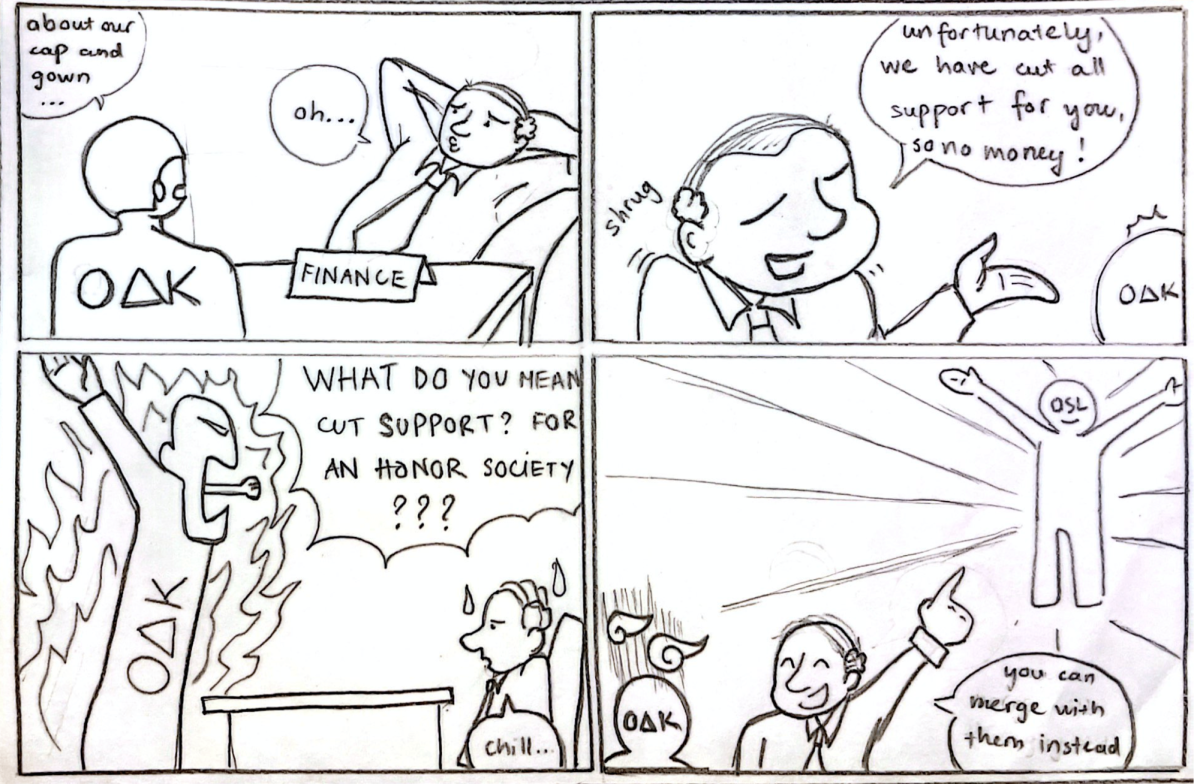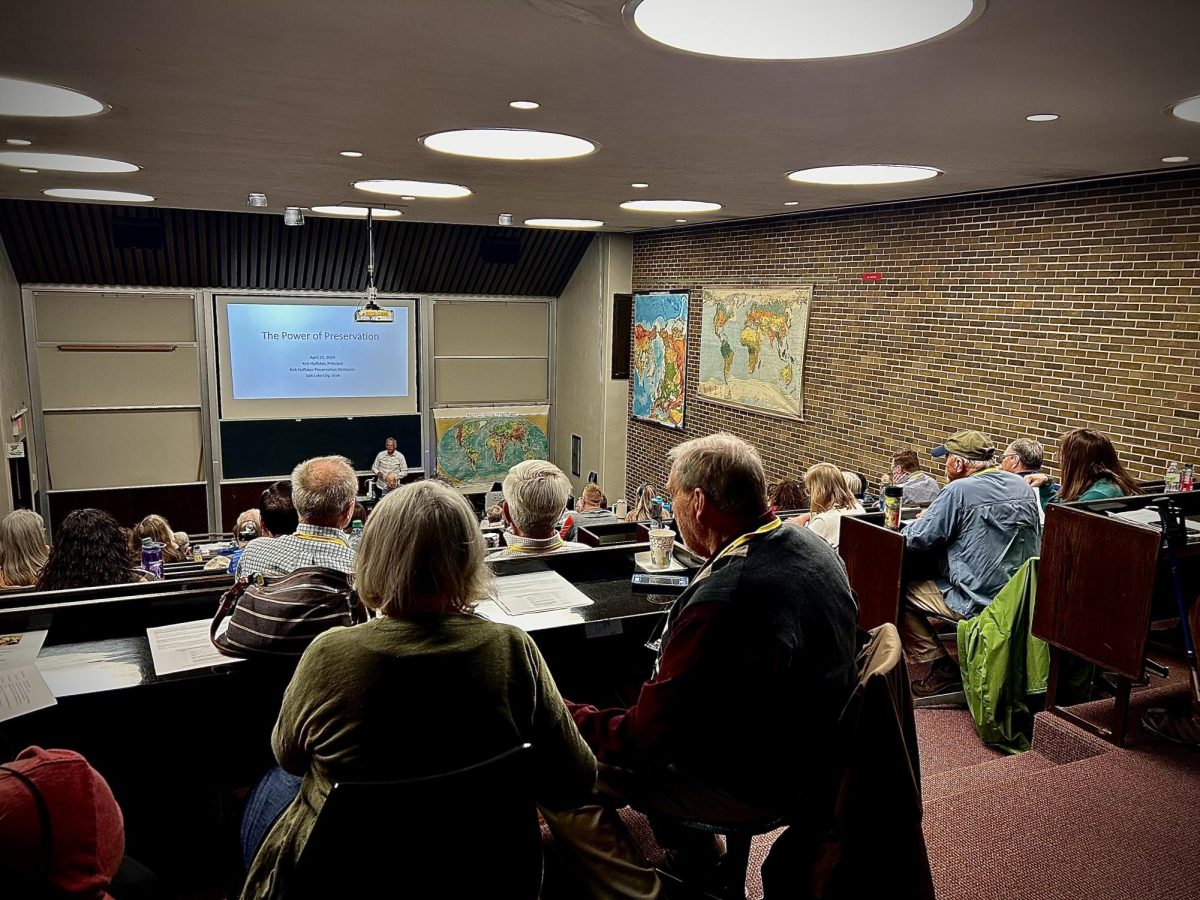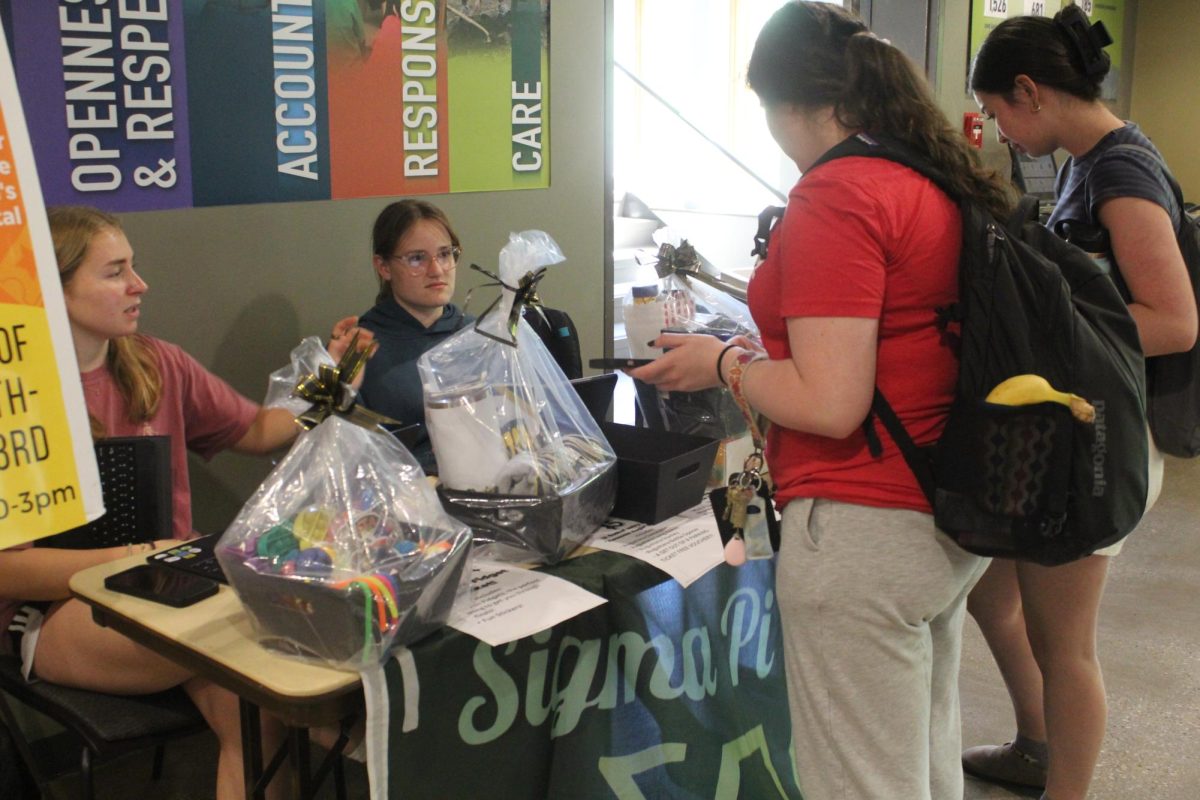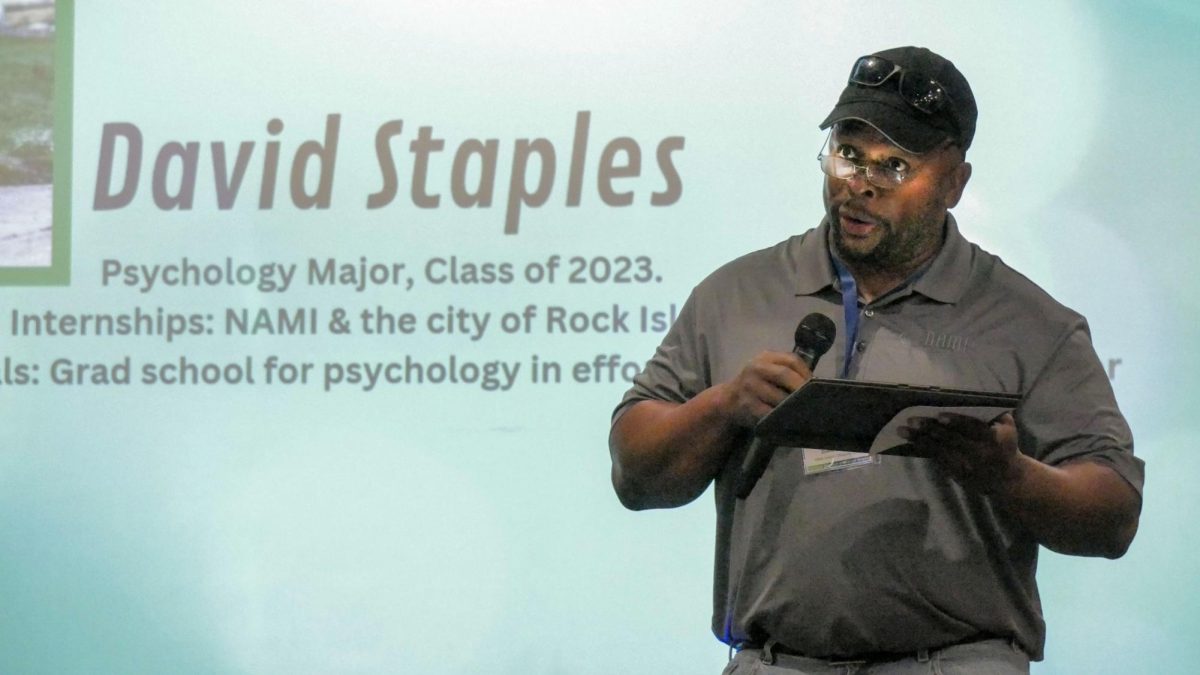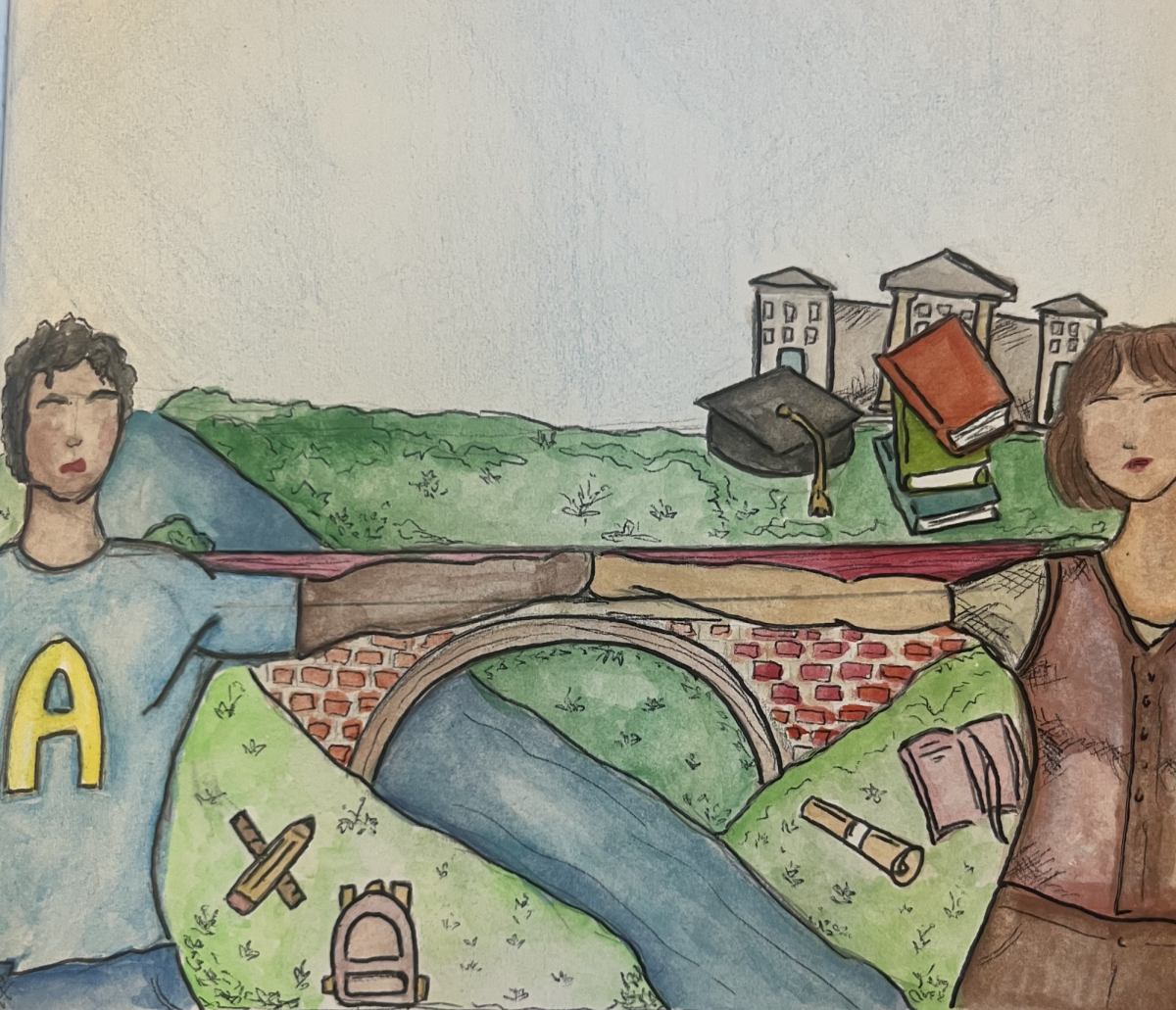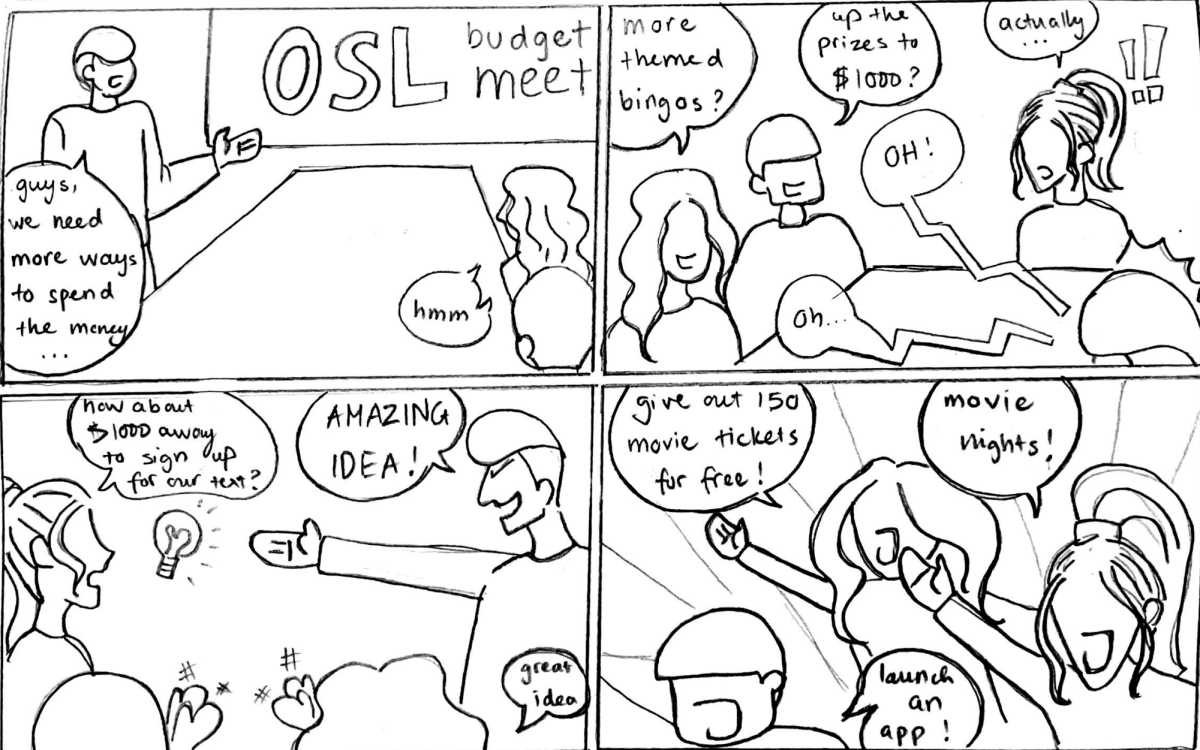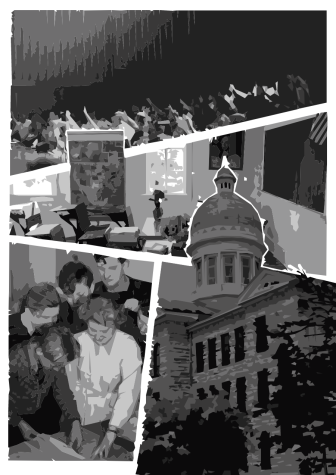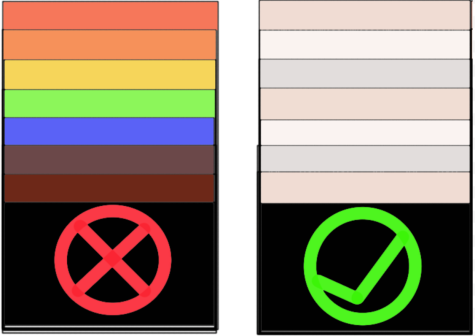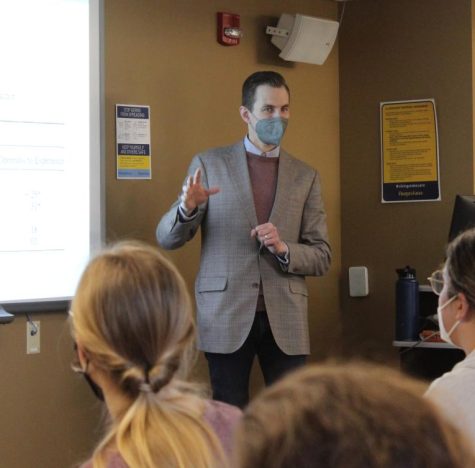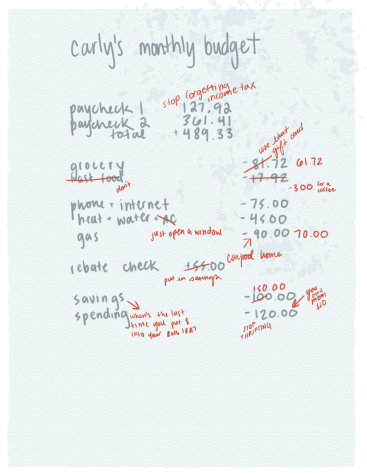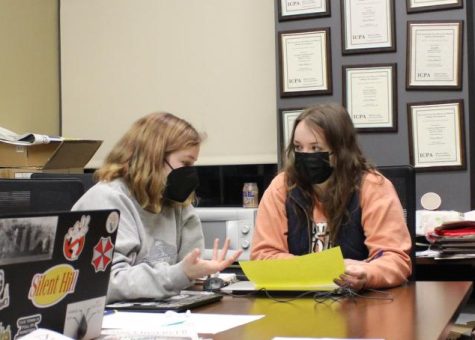Submission: Create change
May 13, 2022
Editor’s note: The author is a representative of the campus group Young Democratic Socialists of America (YDSA). Here, he expresses his views on labor at Augustana.
When the Young Democratic Socialists of America (YDSA) Minimum Wage Committee shared a survey with workers on campus, the message from the more than 90 people who responded was clear: We do not get paid enough for what we do.
The most obvious source of this frustration is the fact that Augustana College pays $9.25 an hour in a state where the actual minimum wage is $12. However, the issue of Augustana’s minimum wage is not simply a numbers game for student workers.
Lack of options off campus, unrewarded effort and Augustana’s failure to keep up with not only the wages of traditional employers, but with other colleges in Illinois, all helped foster the clear consensus seen in the survey.
A common theme throughout survey responses was dissatisfaction with convenient options off campus, especially for those without cars or international students, who are almost entirely cut off from off campus jobs due to legal reasons or challenges finding consistent and safe transportation to and from off campus employers (which is necessary due to the lack of employment options and poor pedestrian infrastructure in the immediate area around Augustana).
One respondent reported spending over three hours a week on transportation for a job less than two miles away due to the inefficiency of available public transportation options.
For a busy college student, three hours is a lot of time to spend on transportation, putting stress on all other aspects of college life.
Other respondents also experienced difficulties managing schedules with off-campus employers, citing inflexible scheduling by bosses unsympathetic to the challenges of balancing work and school.
One respondent put it especially well, stating, “it seems unfair that the only easy option for work is not even close to liveable.” Augustana students are essentially forced into a substandard and inadequate wage by the unrealistic barriers to the fair wages provided by off-campus employment.
In addition to the barriers to off-campus employment, many respondents felt frustrated by the gap between what they felt they provided the college and the compensation they received.
Respondents from admissions and dining services specifically felt a lack of acknowledgement for what they do for the college. One admissions worker who responded pointed out the fact that Augustana is reliant on their work in order to bring in new students – something that is critical for an institution that needs a constant influx of students to continue to exist.
Despite Augustana’s reliance, not just on admissions workers, but workers across all departments, the wage remains $9.25, making workers feel disrespected and unappreciated.
This disrespect is multiplied when it is considered that other institutions in Illinois, such as Knox College, Elmhurst University, Monmouth College and DePaul University, for example, pay the actual minimum wage or more.
This means that it is not impossible for other colleges to do so, even if they are smaller in size.
Other respondents expressed frustration in the weekly hour limits imposed on student workers. They stated that with the wage Augustana pays, they are not able to cover the costs of college life.
Raising the minimum wage would ease both of these tensions by showing the students that the college respects their work and allows students to afford everyday expenses while remaining within hour caps.
While the feelings of frustration were clear from the survey, there were not clear ideas on how students could go about bringing change to Augustana’s minimum wage.
Luckily, the group that conducted the survey, Augustana YDSA Minimum Wage Committee, was formed specifically to address the issue and more importantly, to take action.
The survey for student workers is part of the first stage of a larger campaign to promote engagement and discussion on the subject of Augustana’s minimum wage.
Along with the survey, a petition is being circulated, gaining over 580 signatures in the first two weeks.
Both of these initiatives collect students’ stories and experiences with the minimum wage to show the administration that there is support for an increase.
The YDSA Minimum Wage Committee, however, cannot fight alone and hope to win.
The next phase of the campaign aims to get the campus community further involved through town hall discussions, promoting discussion through publications such as this magazine and possibly protests or strikes if necessary.
These initiatives require everyone’s involvement to be successful.
This means that you, the reader, must get involved in whatever ways you can.
This can mean scanning the QR codes and signing the petition.
And if you’re a student worker, filling out the survey.
It could mean attending future on-campus events such as town halls or protests with your friends.
It could even be as simple as bringing up the topic in conversation and listening to what people have to say.
The important point is that the administration will not change their unethical minimum wage policies if they are unaware of support behind such change. According to the survey and the petition, the want for change exists strongly.
It won’t be easy, but if people like you speak up, we can create change that not only benefits the student workers, but the entire campus community.
